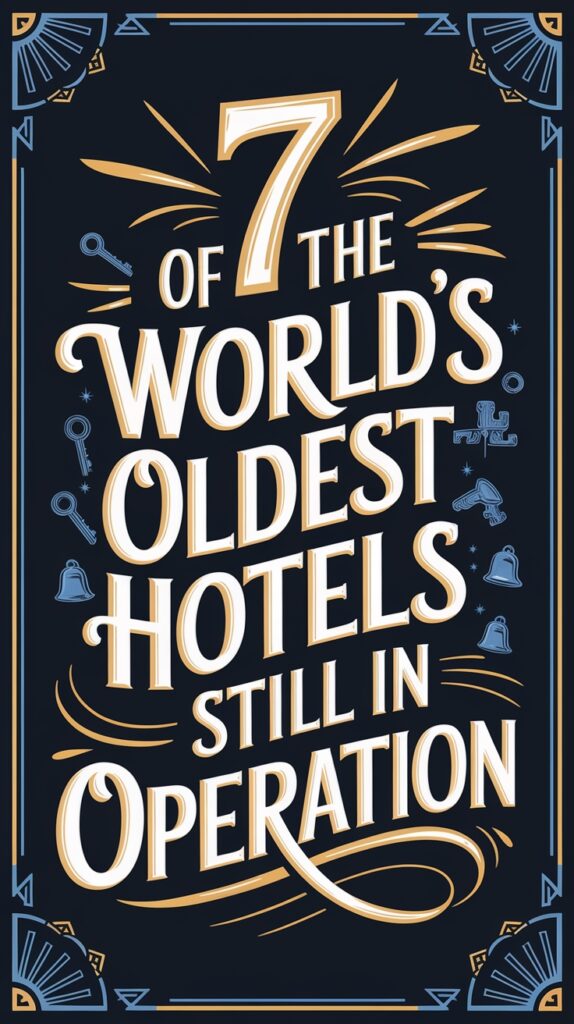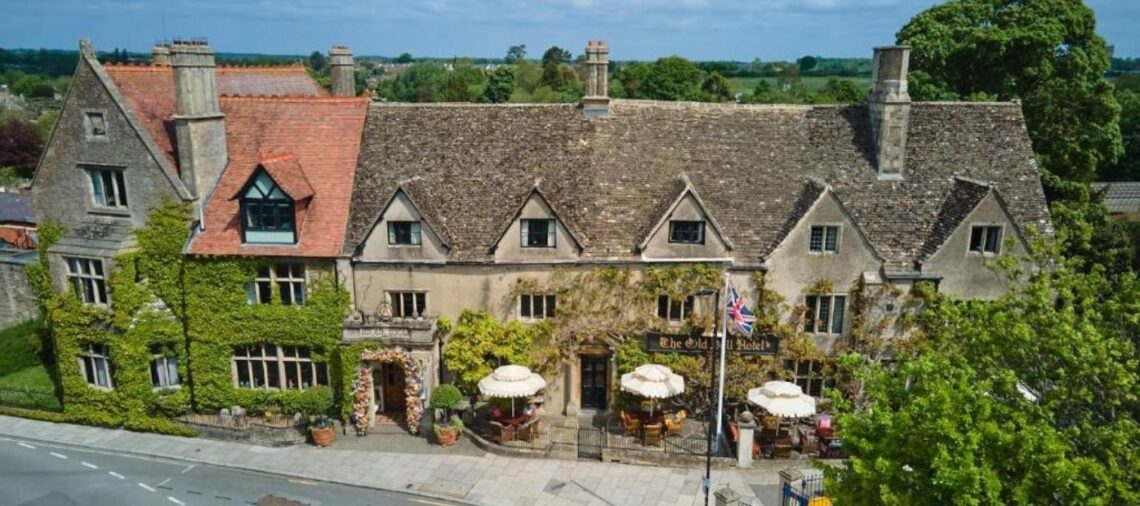The allure of history and hospitality intertwines seamlessly in some of the world’s oldest hotels still in operation today. Out of the serene landscapes of Japan to the medieval streets of Europe, these establishments have not only withstood the test of time but have also preserved their unique charm and cultural significance. Each hotel, such as Japan’s Nisiyama Onsen Keiunkan and Germany’s Zum Roten Bären, offers a glimpse into a bygone era, inviting guests to experience traditions that have been meticulously maintained for centuries. What secrets do these ancient walls hold, and how have they adapted to modernity?
Nishiyama Onsen Keiunkan
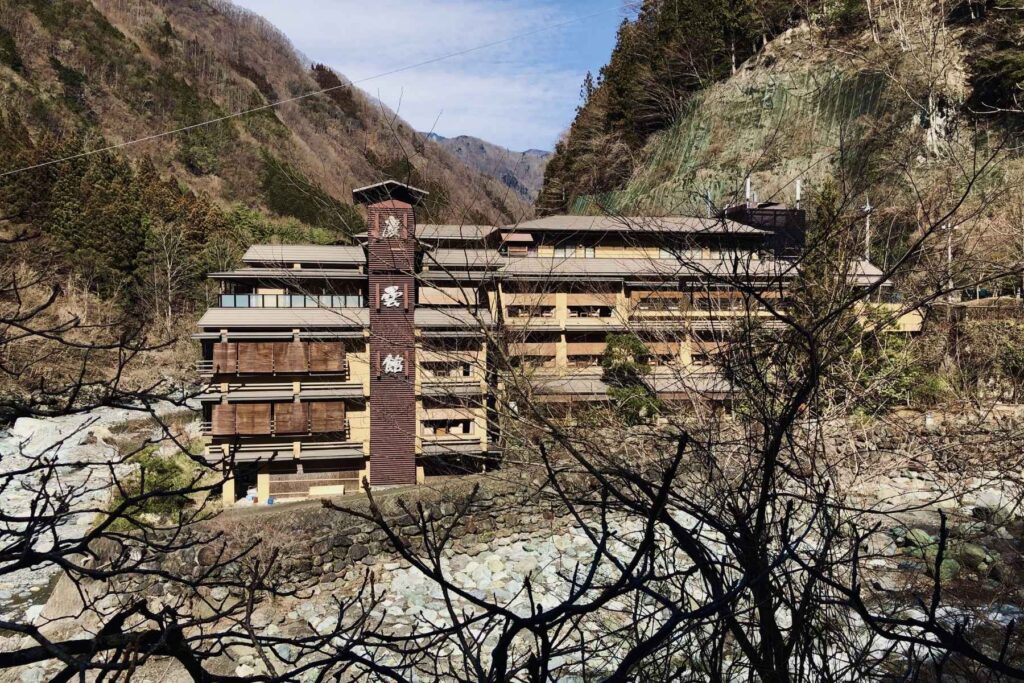
Nishiyama Onsen Keiunkan, a historic inn situated at the foot of the Akaishi Mountains in Yamanashi Prefecture, holds the distinguished title of being the world’s oldest hotel, founded in 705 by Fujiwara Mahito. Envision welcoming guests for over 1,300 years—talk about commitment to traditional hospitality! This extraordinary establishment has seen the evolution of hot springs from humble cave pools to sophisticated private baths in each room, allowing guests to soak in history while enjoying modern comforts.
The inn has been operated by the same family for 52 generations until 2017, which is more than a bit mind-boggling. It’s like a relay race where everyone hands off a baton of hospitality, ensuring guests are treated with the utmost care, or omotenashi, as the Japanese call it. Over the years, major refurbishments have brought Nisiyama Onsen Keiunkan into the present day. In 1997, it transformed into a ryokan with private rooms and futons, and by 2005, every room boasted its own free-flowing hot spring bath. The inn was transferred to Nishiyama Onsen Keiunkan Limited after the family management ended, ensuring continued operation of this historic gem.
Walking through the inn, you’ll notice the seamless blend of traditional Japanese architecture with modern amenities like password-free Wi-Fi. The staff, in their elegant nibu-shiki kimonos, add to the timeless charm, bridging past and present with grace.
Hoshi Ryokan
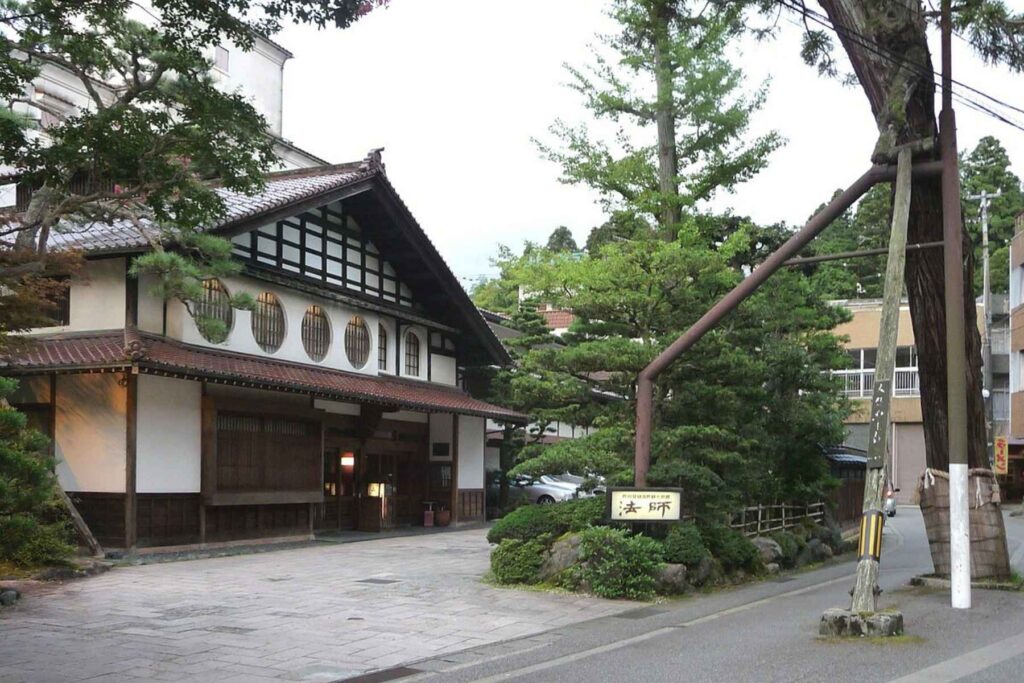
While Nisiyama Onsen Keiunkan stands as a tribute to enduring hospitality, another remarkable establishment, Hoshi Ryokan, also boasts a rich lineage, being founded in 718 AD. Envision the tales these walls could tell! Conceived by monk Taicho Daishi under the divine command of Hakusan Daigongen, Hoshi Ryokan began as a healing retreat, harnessing the region’s hot springs. Garyo Houshi, a faithful disciple, accepted this endeavor, ushering in the Hoshi Legacy. Remarkably, the Hoshi family has steered this venerable institution for 46 generations, earning a proud spot in the Guinness Book of World Records. Notably, Houshi Ryokan is recognized as the oldest Japanese company, a testament to its enduring legacy and commitment to tradition.
Nestled in the serene Awazu Onsen, Hoshi Ryokan offers 70 captivating rooms, each a nod to Japan’s seasons. The traditional tatami mats and shoji doors welcome guests with a warm, rustic charm, while the onsen baths offer blissful respite with picturesque garden views. Speaking of gardens, the surrounding one is a masterpiece, crafted by Edo-period virtuoso Toemon Sano. A stay here isn’t just about lodging; it’s an immersion in traditional hospitality, complete with tea ceremonies and yukata attire. As Hisae prepares to lead, the Hoshi Legacy remains lively, evolving yet deeply rooted in its storied past.
Zum Roten Bären
Amidst the historic ambiance of Freiburg im Breisgau, Germany, stands Zum Roten Bären, one of Europe’s oldest hotels still in operation. This venerable establishment, with foundations dating back to around 1120, is an intriguing blend of historical architecture and medieval hospitality. Its location in the heart of Freiburg’s Old Town district places it among significant cultural landmarks, like the Augustiner Museum and Historical Merchants’ Hall, enriching guests’ experiences with its storied surroundings.
Zum Roten Bären’s enduring appeal lies in its ability to maintain historical authenticity while embracing modern comforts. The hotel is renowned for being the oldest in Germany, a testament to its rich and enduring history. Despite the passage of time—and the occasional damage, such as the 1713 incident with French soldiers—it retains original 12th-century walls and cellars, offering a tangible link to the past. The hotel’s dining experience, the Golden Bear restaurant, serves meals in a setting reminiscent of medieval times, adding a touch of whimsy to its hospitality.
Managed by Christoph Glück and Christian Böhler since 2017, the hotel has seen more than 50 innkeepers, each contributing to its rich narrative of history. Its 25 rooms and common areas have been tastefully updated, ensuring that while guests enjoy medieval hospitality, they do so in contemporary comfort.
The Old Bell Hotel
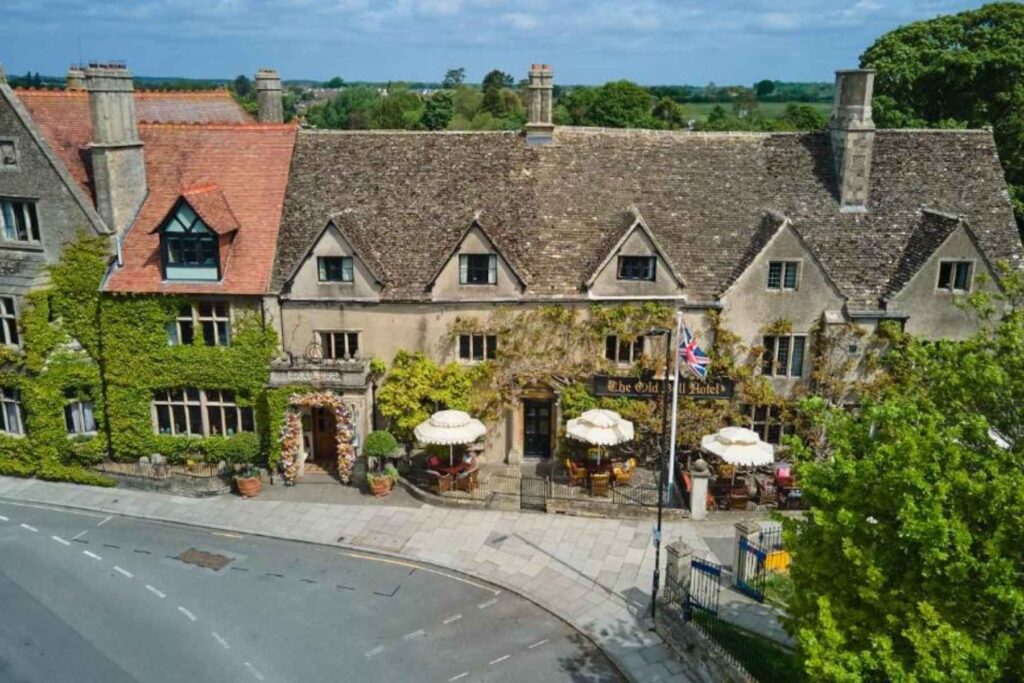
The Old Bell Hotel, steeped in history, stands proudly in Malmesbury, England, with origins dating back to around 1220. Situated on the site where Malmesbury Castle once stood, this remarkable establishment was initially constructed as a guest house for Malmesbury Abbey by the visionary Abbot Walter. Through centuries of change, it has unwaveringly provided historic hospitality, evolving from its original purpose to become a cherished inn following the Abbey’s Dissolution in 1539. While you wander its hallways, you can almost hear the whispers of the past, echoing through its architectural heritage. The hotel, much like historical telecommunications infrastructure such as the Old Bell Telephone Building, symbolizes significant advancements in its respective field over time.
This Grade I listed treasure showcases its rich history with limestone rubble construction and charming mullion windows. The 17th-century roofline and dormers add character, while the 16th-century two-bay extension introduces a touch of Tudor flair. Curiously, the hotel was integrated with Castle House in the early 20th century, enhancing its historic allure. Today, under the stewardship of Kim and Whit Hanks, who discovered their own family ties to the hotel, The Old Bell Hotel continues to thrive as a lively hub of Malmesbury life. It operates with Whim Hospitality, offering delightful events and community integration, ensuring its legacy endures with grace and warmth.
Maids Head Hotel
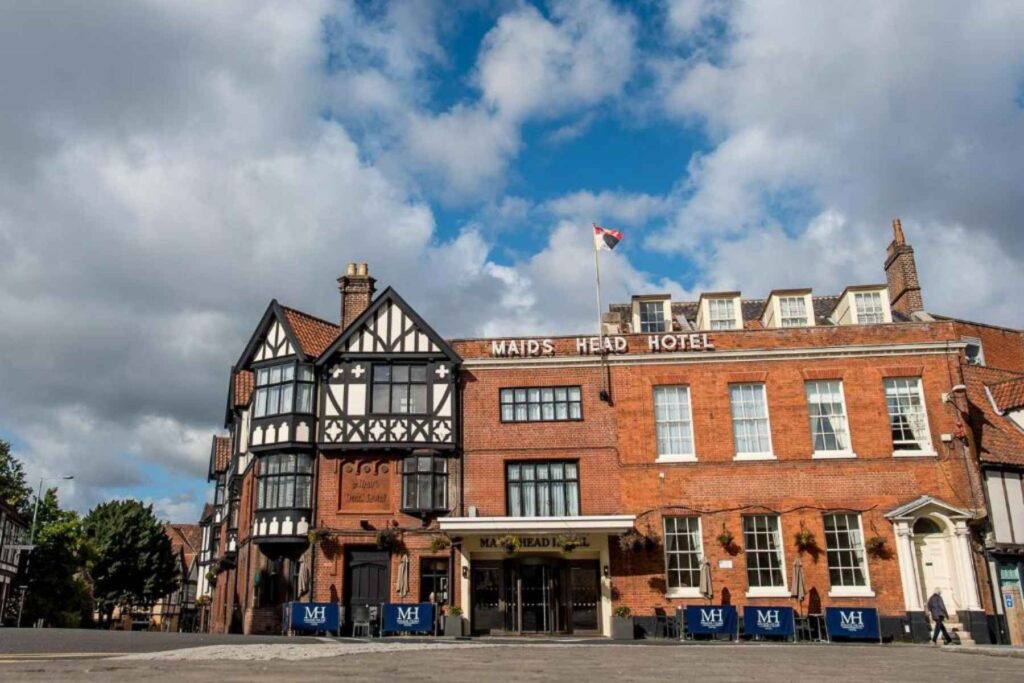
As we journey away outside the historic corridors of The Old Bell Hotel, another ancient gem beckons: the Maids Head Hotel in Norwich. Situated in the lively heart of Norwich, this venerable establishment stands a stone’s throw away from the majestic Norwich Cathedral and is steeped in historic significance. Its location on Wensum Street, an area with roots dating back to Roman times, provides a picturesque setting near the bustling intersections of Tombland and Palace Street.
The Maids Head boasts a remarkable lineage, continuously serving travelers since the 1090s. Its storied past includes visits by illustrious figures like the Black Prince in 1359 and Catherine of Aragon, adding layers to its historic significance. The architectural features are a showcase of its rich history, with the oldest parts dating back to the 15th century. Highlights include a charming courtyard, the Oak Room, and Jacobean Oak paneling in the bar. Notably, the Maids Head Hotel was also home to the first Masonic Lodge established in 1724, marking its significance in both local and broader historical contexts.
In a delightful blend of the past and present, the hotel offers modern amenities, including a 2 AA Rosette WinePress Restaurant. Yet, despite its updates, the Maids Head Hotel preserves its enchanting historical allure, inviting guests to step back in time.
Hotel Interlaken
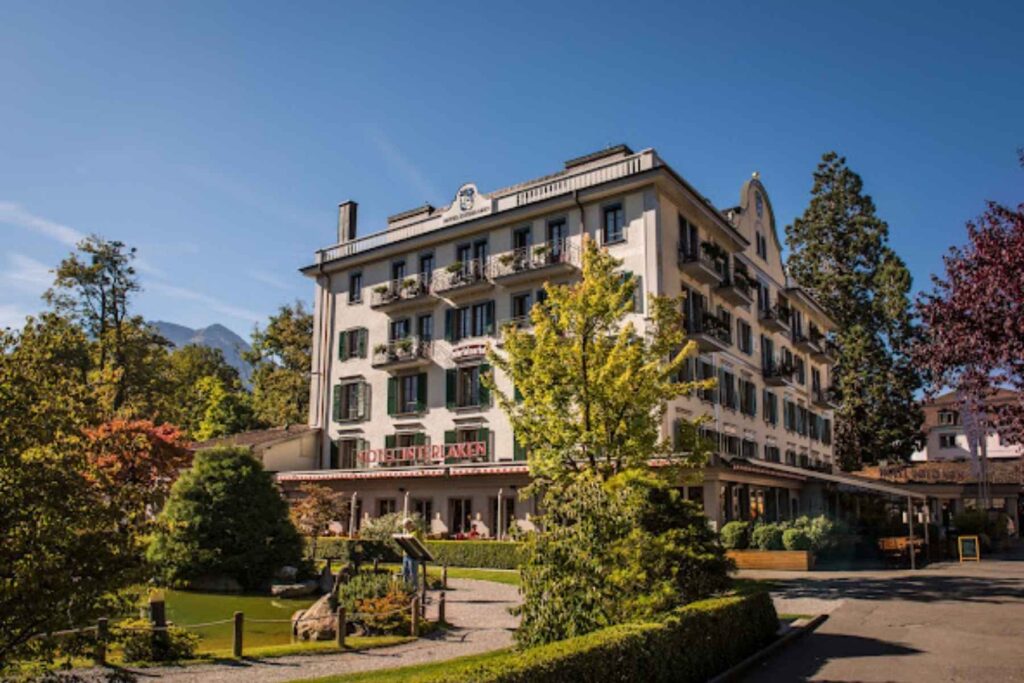
Dating back to the 14th century, Hotel Interlaken is a historic establishment that first appeared in chronicles in 1323. Originally a cloister guest house, it was run by monks and nuns and quickly became a pivotal center for the Bernese Oberland’s administrative district. In 1491, the hotel underwent a significant renovation by Louis Ross, earning its own coat of arms, a late Gothic relief still proudly displayed today, showcasing its historical significance. Envision the stories those walls could tell—Lord Byron scribbling poetry or Felix Mendelssohn composing music, both of whom have rooms named in their honor.
Fast forward to modern times, and the Beutler family has owned the hotel since 1984, with Georges Beutler taking the reins in 2006. They’ve skillfully balanced preserving its historical charm while integrating modern amenities. Guests can enjoy the convenience of Wi-Fi, minibars, and internal cooling systems, providing comfort amidst history. Located near Interlaken’s bustling train station and serene Japanese Garden, the hotel offers a delightful culinary journey at Restaurant Taverne, serving up modern Swiss cuisine. Whether you’re in the historical courtroom-turned-conference-room or sipping Rugenbräu beer at the Kloster Lounge, Hotel Interlaken seamlessly merges past and present. The hotel is also known for its long-standing relationship with Rugenbräu brewery, offering a selection of their finest beers to guests.
Orso Grigio Hotel
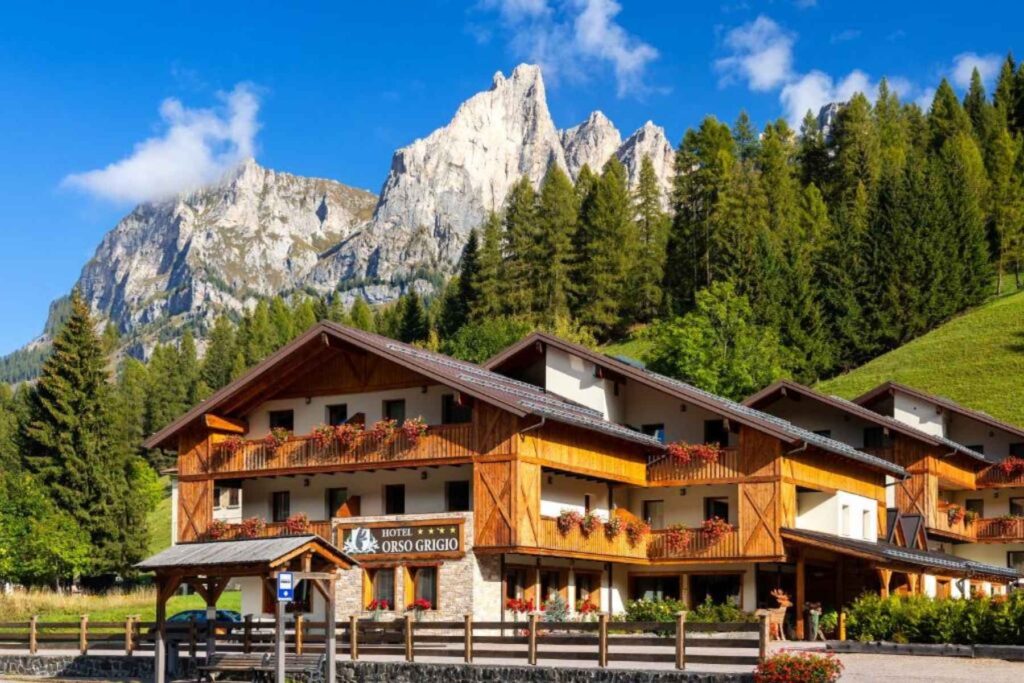
Stepping out of the historic Hotel Interlaken to another ancient marvel, Orso Grigio Hotel boasts a rich history that traces back to 1303. Originally a guest house for wagoners and merchants, its historical significance is underscored by its evolution over centuries. The hotel’s family legacy began in 1745 when Josef Kopfsguter entrusted it to Franz Hellenstainer, ushering in an era of familial stewardship that continues to this day. Currently, the hotel is managed by Franz Ladinser and his daughter Verena, representing the 9th and 10th generations of dedication to hospitality. Reflecting its historical roots, the hotel has survived significant events such as fires, plague, and the Thirty Years War, showcasing its resilience and importance through time.
The Orso Grigio Hotel offers a unique blend of historical charm and modern comfort. With 28 rooms providing stunning views of the Baranci mountain range and Mt. Elmo, guests can enjoy a harmonious mix of historical flair and contemporary design. The wine cellar, boasting around 300 labels, is a reflection of the hotel’s commitment to exceptional dining experiences. Dinner menus delight with themes drawn from local traditions, using regional and seasonal ingredients, while breakfast is celebrated for its freshness and variety.
The hotel’s ambiance is steeped in history, with its late-Gothic reception hall and Biedermeier parlor, providing a warm, welcoming atmosphere for all who visit.
Wrapping up
In the fabric of time, these historic hotels stand as living monuments to the enduring art of hospitality. From Japan’s ancient ryokans to Europe’s medieval inns, each establishment conveys a narrative as rich and layered as a well-aged wine. They serve as reminders that while the world evolves, some havens of comfort and tradition remain steadfast. These venerable institutions invite travelers to enter history, offering a unique blend of old-world charm and timeless hospitality.
